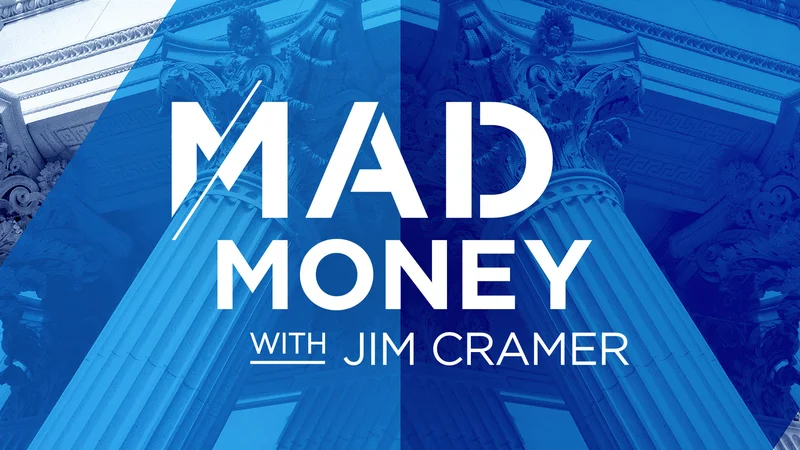Let's get one thing straight. Every time I see Jim Cramer on TV, with his shirtsleeves rolled up, face beet-red, smashing a sound-effect button like a toddler who just discovered sugar, I have to ask myself: who is this performance for? Seriously. Is it for the hedge fund guys he used to run with? No, they’re laughing at him. Is it for serious, long-term investors? God, I hope not.
So what is Mad Money? It’s financial theater. It’s a high-energy, low-substance fireworks display designed to make you feel like you’re in the know. You, the little guy, are getting secrets whispered—or rather, screamed—from a Wall Street insider. It’s a brilliant, intoxicating, and utterly dangerous premise.
The Man Behind the Soundboard
Before the yelling and the props, there was a different Jim Cramer. The facts are almost comical when you stack them up against the on-air persona. This isn't some rube who got lucky. This is a Harvard guy. Editor of the Harvard Crimson. Harvard Law. Goldman Sachs. Then he runs his own hedge fund, Cramer Levy Partners, and reportedly clears over $10 million a year. This is a man who understands exactly how the machine works because he helped build the gears.
So the screaming, the "BOO-YAH!", the throwing chairs—it’s all an act. A calculated bit of carny-barker showmanship designed to sell you on the idea that the market is a simple game of "buy" and "sell" that can be mastered during a one-hour slot on basic cable. He's turned the stock market into a casino, where he's the dealer, the pit boss, and the guy running the flashy lights. The sounds are loud, the action is fast, and the odds are always, always in the house's favor. You might win a hand or two, but the entire system is built to keep you playing, keep you chasing, keep you feeding the machine.
This act was never more transparent, or more infuriating, than during the lead-up to the 2008 financial crisis. The infamous clip of him telling people Bear Stearns was "fine!" just days before it imploded is a masterclass in misplaced certainty. He was just giving advice. No, 'bad' doesn't cover it—he was selling a fantasy, and when Jon Stewart put his feet to the fire for it, the whole world saw the disconnect. The fast-talking TV host had to answer for the real-world consequences of his "entertainment." For a moment, the mask slipped. But then what happened? Nothing. The `mad money cnbc` show went on.
Does a guy who helped build the system feel any guilt for luring people into its most dangerous corners? Or is it just another segment, another lightning round, another day at the office?

The Content Machine and the Punchline
The daily grind of the `mad money show` is relentless. "Affirm is a buy!" "No to Remitly!" "IFF is 'just flatlining'!" Each call is delivered with the unwavering conviction of a prophet, only to be forgotten by the next commercial break. It’s a firehose of hot takes, and the sheer volume guarantees he’ll be right sometimes. A broken clock, and all that.
It reminds me of the broader content hellscape we live in. This need to have an opinion on everything, right now, no matter how little you actually know. It ain't healthy. It burns out journalists, creators, and offcourse, the audience that has to sift through the noise. But for the `mad money host`, the noise is the entire point.
The ultimate punchline, though, is the rise of the "Inverse Cramer" strategy. There are literally ETFs and online communities built around the simple premise of doing the exact opposite of what Jim Cramer recommends. Think about that. The most famous stock picker on television has become a reliable contrarian indicator. His brand is so potent that its very negation has become a viable, meme-ified investment thesis. How does a man continue to sit in that chair every night knowing that a significant chunk of the market thinks his advice is only useful as a roadmap of what not to do? Does he know? Does he care?
Then again, maybe I'm the crazy one here. The show has been on since 2005. The ratings are still there. The `mad money with jim cramer` brand is as strong as ever. They just want the eyeballs, and if that means a few retail investors get wiped out chasing a stock he screamed about for 45 seconds...
Maybe the joke is on us for expecting anything more.
So, Who's the Real Sucker Here?
At the end of the day, Jim Cramer isn't the problem. He's a symptom. He's the loud, frantic, sweaty embodiment of a financial media complex that has decided entertainment is more profitable than education. Nuance is boring. "Buy and hold" doesn't move the needle. Caution doesn't pop a rating. What sells is action, drama, and the illusion that you can get rich quick if you just listen to the right guy with the loudest sound effects. The real "mad money" isn't a stock he's pitching; it's the cash we're all crazy enough to bet based on a TV show. He's not selling stocks; he's selling lottery tickets. And the house always wins.
